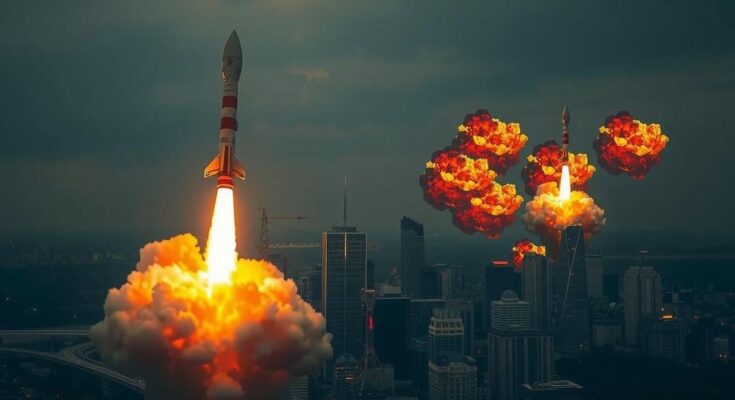Hezbollah fired 135 rockets into Israel, and the IDF responded with airstrikes in Beirut. The U.S. expressed concerns over actions against the Lebanese army while continuing to seek ceasefire agreements in Gaza and Lebanon. Senator Graham discussed the potential for an Israel-Saudi normalization deal before the year’s end. U.S. and British forces targeted Hodeidah, Yemen. IDF reservists recounted their experiences in Lebanon.
On Wednesday, Hezbollah launched a significant barrage of 135 rockets into Israeli territory, prompting a response from the Israel Defense Forces (IDF), which conducted airstrikes in the Dahiyeh neighborhood of Beirut. This escalation has drawn international attention, particularly from the United States, which expressed concern regarding reported airstrikes targeting the Lebanese army. National Security Communications Advisor John Kirby emphasized that the Biden administration continues to pursue ceasefire agreements in Gaza and Lebanon, supporting regional diplomacy. In a related geopolitical development, U.S. Senator Lindsey Graham indicated that an agreement to normalize relations between Israel and Saudi Arabia could be within reach before the end of the year, citing discussions with Israeli Prime Minister Benjamin Netanyahu. Graham highlighted that the opportunity for such a deal may diminish with the incoming administration, advocating for the current administration’s efforts. The military engagement in the region has also seen U.S. and British forces conducting strikes in Yemen’s Hodeidah, as reported by Houthi-aligned media. Additionally, IDF reservists from the Etzioni Brigade shared their experiences following recent operations in Lebanon, describing the intense training and preparations for combat encountered in the region. This situation is ongoing, with the White House remaining vigilant about developments in Syria, where an explosion was reported in Damascus, though details remain sparse. The article outlines a complex landscape of military conflicts, international diplomacy, and regional stability efforts amid rising tensions.
The article addresses the heightened conflict between Hezbollah and Israel, detailing the launch of numerous rockets and the Israeli air response in Beirut. It reflects on the broader geopolitical implications, including U.S.-Israel relations and the administration’s stance on potential normalization of ties between Israel and Saudi Arabia. Additionally, the article touches upon ongoing U.S. military involvement in Yemen and the implications for regional stability. This context is crucial for understanding the dynamics at play, especially as they relate to U.S. foreign policy and military strategy in the Middle East.
In summary, the situation in the Middle East remains tense, marked by Hezbollah’s aggressive actions against Israel and retaliatory strikes by the IDF. The United States is actively monitoring these developments, emphasizing the importance of maintaining dialogue and pursuing ceasefires in affected regions. The prospects for normalization between Israel and Saudi Arabia underscore the intricate diplomatic maneuvering taking place against a backdrop of violence and instability.
Original Source: www.jpost.com




